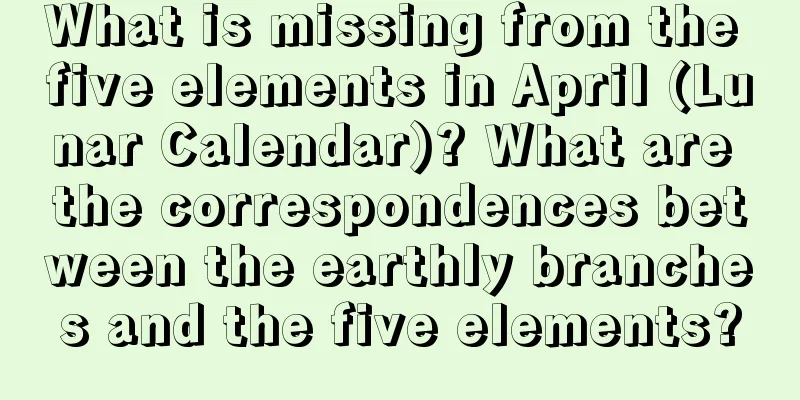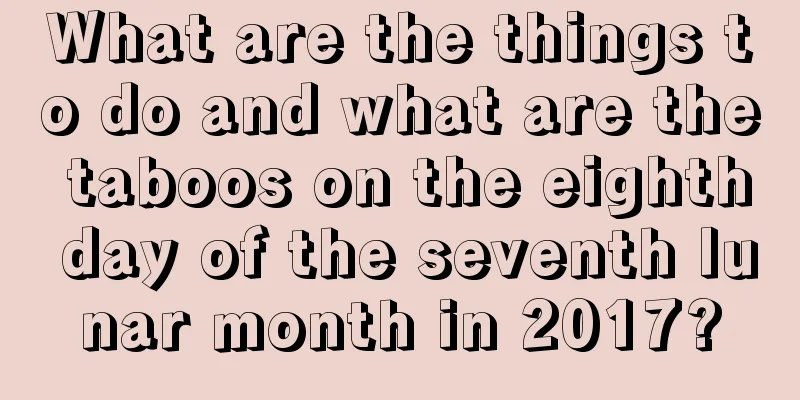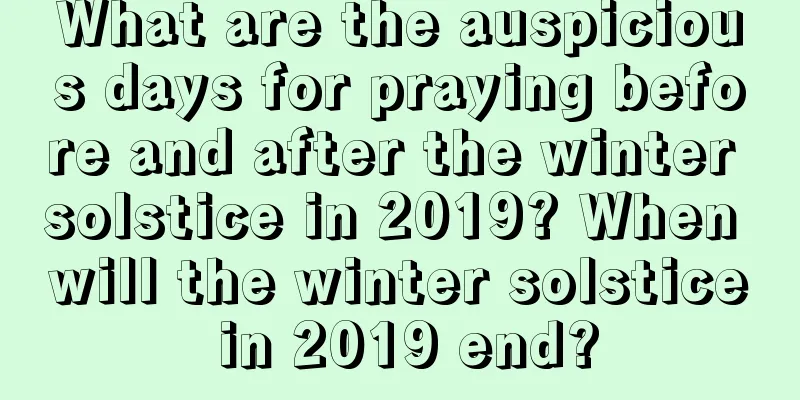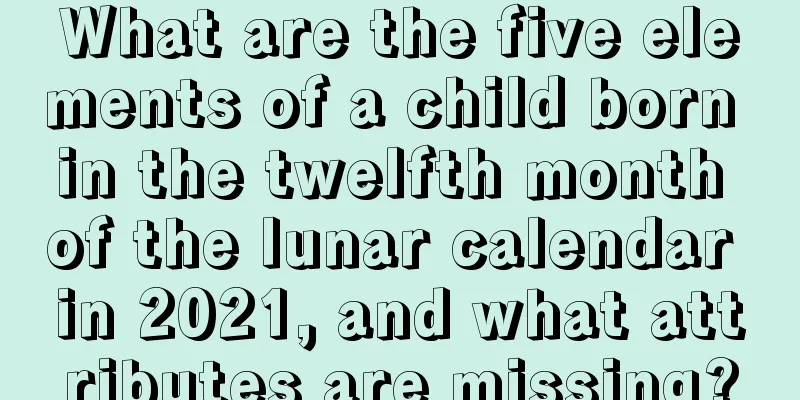What is the meaning of the custom of sweeping the house and dust on the 24th day of the twelfth lunar month in 2020?

Introduction: There are many rules to follow as the days get closer to the Chinese New Year in the late twelfth lunar month. So what is the meaning of the custom of sweeping the house and dusting during the Southern New Year on the 24th day of the twelfth lunar month in 2020? Follow the editor to find out. The twelfth month of the lunar calendar is the month when the year changes and we must worship our ancestors and gods. Follow Mr. Shui Mo to learn more about the twelfth month of the lunar calendar in 2020.The meaning of house sweeping in the southern part of the year on the 24th day of the twelfth lunar month in 2020The traditional custom of sweeping the house has a long history. A folk song says: "The 24th is the day to sweep the dust." Sweeping the dust is the year-end cleaning, called "sweeping the house" in the south and "sweeping the room" in the north.Sweeping the house before New Year's Day is a traditional custom of the Chinese people. Every time the Spring Festival comes, every household has to clean the environment. They tie green bamboo leaves and pomelo leaves to poles and sweep the dust and cobwebs on the roof ceiling and walls. This is said to sweep away "bad luck" and "bad luck" and bring good luck in the coming year. In addition to sweeping the house, they also have to clean various utensils, take apart and wash bedding and curtains, sweep the courtyard, dredge open and underground ditches, etc. All over the country, people are welcoming the New Year with a clean atmosphere. Folk experts said that sweeping the dust not only means to drive away diseases and pray for good health in the new year, but also means to get rid of the "old" (dust) and usher in the new. This custom signals to people the busy atmosphere of the New Year. On the 23rd or 24th of the year, we officially start preparing for the Chinese New Year. People call the 23rd or 24th day of the year "Dust-Sweeping Day". Whenever the Spring Festival comes, there is a joyful atmosphere everywhere as people clean up the house happily and welcome the New Year in a clean manner. According to Chinese folk saying: because "dust" and "old" are homophones, sweeping the dust during the New Year has the meaning of "getting rid of the old and welcoming the new", and its purpose is to sweep away all the "bad luck" and "bad luck". This custom embodies people's desire to break the old and establish the new and their prayers to bid farewell to the old and welcome the new. ——The meaning of house sweeping in the south on the 24th day of the twelfth lunar month in 2020 is to sweep away "bad luck" and "bad luck", get rid of the old and welcome the new, and sweep all the "bad luck" and "bad luck" out of the door. It also means to drive away diseases and pray for good health in the new year. The time difference of Xiaonian in different regionsMost parts of the north: The 23rd day of the twelfth lunar month - "Little New Year in the North". Since the middle and late Qing Dynasty, the imperial family has held a ceremony to worship the sky on the 23rd day of the twelfth lunar month. In order to "save money", they also worship the Kitchen God. Therefore, the people in the northern region follow suit and celebrate the Little New Year one day in advance on the 23rd day of the twelfth lunar month. Most parts of the south: The 24th day of the twelfth lunar month - "The traditional folk Little New Year" . As early as the Song Dynasty, there were records of "celebrating the Little New Year on the 24th day of the twelfth lunar month". Most parts of the south still maintain the ancient tradition of celebrating the Little New Year on this day. Jiangsu, Zhejiang and Shanghai Region: The day before New Year’s Eve - "Little New Year’s Eve" Jiangsu, Zhejiang and Shanghai regions usually call New Year’s Eve "Big New Year’s Eve". Correspondingly, the night before New Year’s Eve is called "Little New Year’s Eve", and this day is also called Little New Year. Historically, the 24th night of the twelfth lunar month, which the people of Wu called the 24th Night, is the day to send off the Kitchen God, and therefore called this night the Little New Year's Eve. Sichuan and parts of Guizhou: New Year's Eve - "Little New Year" In some areas of southwest China, people celebrate the Little New Year on New Year's Eve, and their Big New Year is mostly on the 14th or 15th day of the first lunar month. Nanjing area and other places: The 15th day of the first lunar month (Lantern Festival) - "Little New Year" According to legend, after Emperor Chengzu Zhu Di usurped the throne, the people of Nanjing complained about his cruelty and harsh policies. They used the lantern festival on the 15th day of the first lunar month to remember the previous emperor's lenient policies, and so the Lantern Festival became Nanjing's Little New Year. The origin of house sweepingAccording to Lüshi Chunqiu, the custom of sweeping the house during the Spring Festival has existed in China since the Yao and Shun era. What is special is that when dusting, you use straw and a wooden stick longer than a person's height to make a long broom, and clean up the dust, spider webs and other dirt on the beams and corners of the house. Then they would save the straw and light it for the men to dance the "fire dance" after the New Year's Eve dinner. |
Recommend
What should we do on the Dragon Raising Day in 2019? Taboos of Dragon Raising its Head on February 2
What should we do on the second day of the second ...
When is the Frost Descent solar term in 2018 and what are the customs?
Frost Descent is one of the 24 solar terms in the ...
What are the rules for burning winter clothes? Things to pay attention to when burning winter clothes for worship
The Cold Clothes Festival, also known as the "...
The direction of the God of Happiness on the ninth day of the third lunar month in 2019
Every day has its good and bad days. If you want ...
Is the twelfth lunar month of 2021 suitable for funerals? A list of auspicious days for funerals in the twelfth lunar month
The twelfth month of the lunar calendar is the mon...
Is it a good idea to pick up the car on the tenth day of the ninth lunar month in 2020? Is it suitable?
Is it a good idea to pick up the car on the tenth...
Analysis of the 17th day of the fifth lunar month in 2021. Is it a good day to get married?
There are a lot of people getting married every da...
How is May 18th in the lunar calendar 2019? Is today an auspicious day?
Introduction: Every day will unfold differently, a...
Is it auspicious to open a business on the second day of June in 2020? Is it hotter in the Great Heat or in the Beginning of Autumn?
Introduction: Generally, it is necessary to choose...
What is the Cold Clothes Festival? Explain its meaning!
We know that the Zhongyuan Festival and Qingming F...
Is the Chinese Valentine's Day based on the lunar calendar or the solar calendar? Introduction to the customs of the Qixi Festival
Qixi Festival is one of China's traditional fe...
What is the content of the lunar calendar for the eighth day of the twelfth lunar month in 2020? What are the do's and don'ts?
The twelfth month of the lunar calendar, commonly...
What are the things not to do on the sixth day of the ninth lunar month in 2018?
The ninth month of the lunar calendar is called t...
Is July 16th of the lunar calendar in 2018 an auspicious day? What are the auspicious and inauspicious signs for that day?
The first choice is the zodiac day, then choose th...
What is the fate of a boy born on the 28th day of the twelfth lunar month in 2019? Will he have good luck in his life?
Introduction: Every day, new life is born into thi...









